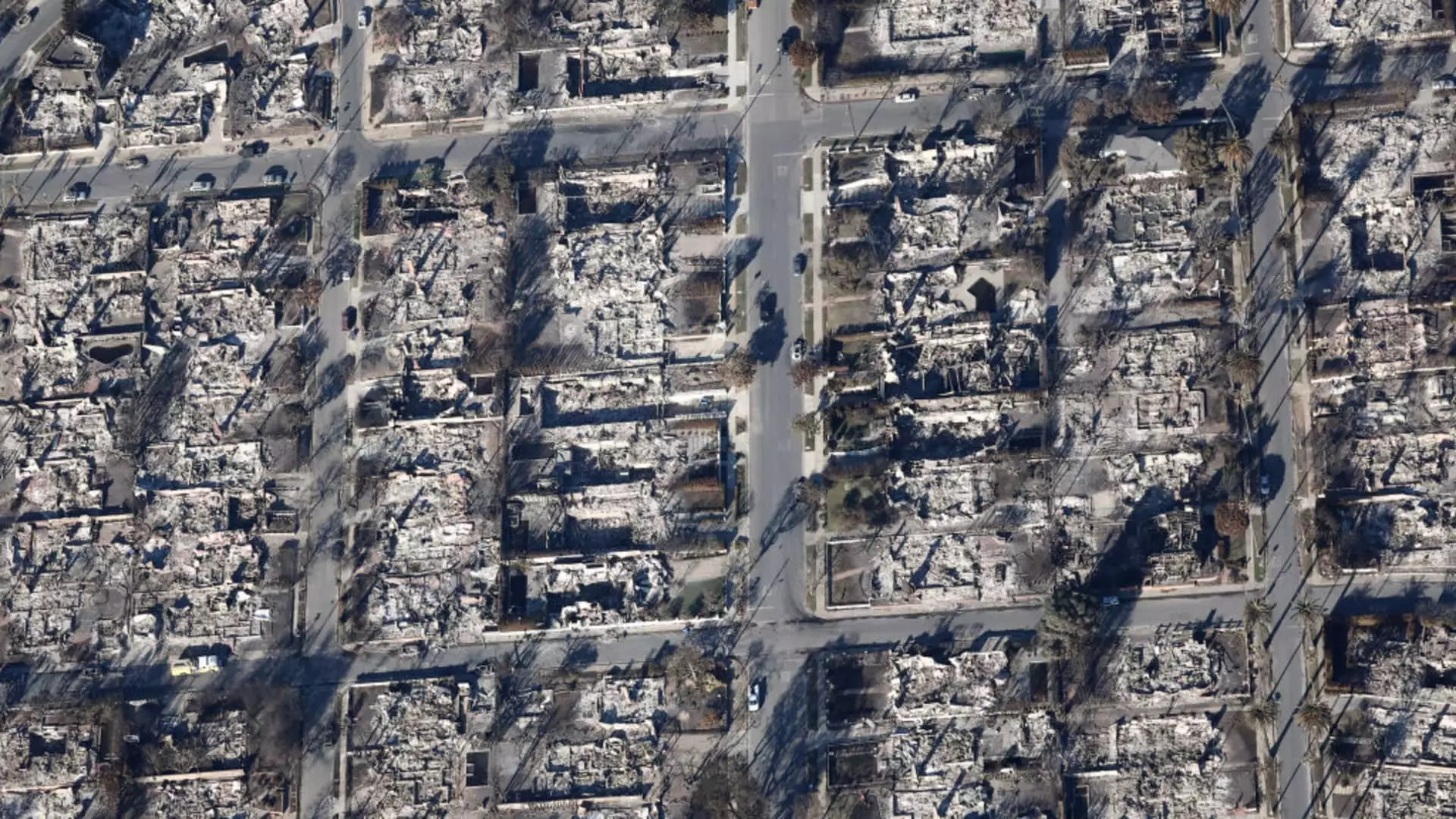In the world of real estate, trends often shift as rapidly as the tide, but nothing seems to exacerbate housing challenges more than a natural disaster. The recent wildfires in Los Angeles have left families like Joe Thompson’s scrambling for shelter, further illuminating the precarious state of the housing market. Thompson’s family, like many others, is not just facing the immediate impact of losing their home but also grappling with rising rents that exacerbate an already dire housing shortage. Their search for a five-bedroom rental in Santa Monica yielded a staggering monthly rent of $28,000—a figure that speaks volumes about the growing accessibility issues faced by families affected by the wildfire.
The multifaceted aftermath of these fires paints a bleak picture where demand outstrips supply. With the comparative desperation of thousands seeking new accommodations in a city that was already wrestling with housing issues prior to the disaster, we witness not only a humanitarian crisis but also an economic one, intensifying the pain felt by those displaced.
Exploiting Desperation: Rent Price Hikes
As the flames subsided, the rental market suddenly became a breeding ground for price gouging. Local homeowners and property managers have taken advantage of vulnerable families, inflating rental prices well beyond the legal 10% increase allowed during a state of emergency. Reviews by housing advocates and real estate professionals reveal shocking statistics: spikes of up to 100% in some listings, creating a chasm between what displaced families can afford and what landlords are willing to charge.
This manipulation of supply and demand raises ethical questions about the moral responsibilities of landlords when faced with such crises. State Assemblymember Jacqui Irwin’s remarks echo the sentiments of many who are advocating for tighter regulations and active enforcement against these unscrupulous practices. Reports of residents being encouraged to report price gouging serve as a testament to the urgent need for protective legislation. The blatant disregard for fair pricing in favor of profit maximization reinforces the existing narrative that, in times of adversity, the most vulnerable often pay the highest price.
The numbers tell a daunting story. Wildfires have wreaked havoc, consuming over 40,000 acres and destroying more than 12,300 structures, leaving a mosaic of chaos in their wake. But alongside the destruction of homes, we witness a significant increase in the demand for housing—a displacement crisis that particularly affects those already on precarious financial footing. Many low- to middle-income families had been renting their homes before the fires, and their plight now becomes more grueling as they attempt to find comparable or affordable housing.
Realtors like Brock Harris describe a scenario where longtime homeowners may feel overwhelmed by sudden market changes that they haven’t had to navigate in years. The spike in demand has created an atmosphere rife with bidding wars, lengthy waiting lists, and the expectation of upfront payments that many families simply cannot afford.
Amidst the unfortunate reality of skyrocketing rents lies a glimmer of hope embodied by acts of kindness and communal support. Local organizations and non-profits, like Airbnb.org and 211 LA, have been mobilizing to aid wildfire victims, providing temporary housing solutions amidst the turmoil. These grassroots initiatives showcase how community solidarity can emerge in the face of adversity, a reminder that the human spirit can withstand even the most challenging times.
However, while some narratives of generosity prevail, the undercurrent of fear still looms large. Individuals such as Magdaleno Rosales from the Los Angeles Tenants Union have sounded the alarm on the possibility of mass evictions, caught in a perilous game where landlords see opportunity in tragedy. The uphill battle for affordable housing is set to worsen, creating a ripple effect in a state that was already grappling with a housing crisis before the flames ignited.
Families like Thompson’s continue to search for a new place to call home, caught in a web of uncertainty regarding their financial future and the availability of decent housing options. As they navigate a rental market rife with challenges, the resilience of affected families will be put to the test. Ranging from the working-class to the affluent, displaced individuals confront a landscape where searching for a suitable rental feels impossible.
The inconsistency in rental prices—as illustrated by potential listings that have either increased exorbitantly or remained unchanged—places a heavy burden on families who have recently lost everything. Their ongoing struggle underscores a greater conversation about housing rights and protections in times of natural disasters. If real solutions are to be pursued, they must come not only from legislative measures but also from a communal commitment to uphold ethical standards that prioritize human dignity over profit margins.
The wildfires have rendered a stark reminder of the fragility of our housing landscape, propelling many to reevaluate not just their living situations but the broader societal structures that dictate housing rights in crisis moments. As we witness the developments of this story unfold, it becomes clear that addressing the root causes of these housing challenges is vital for the healing and recovery of communities left in turmoil.

